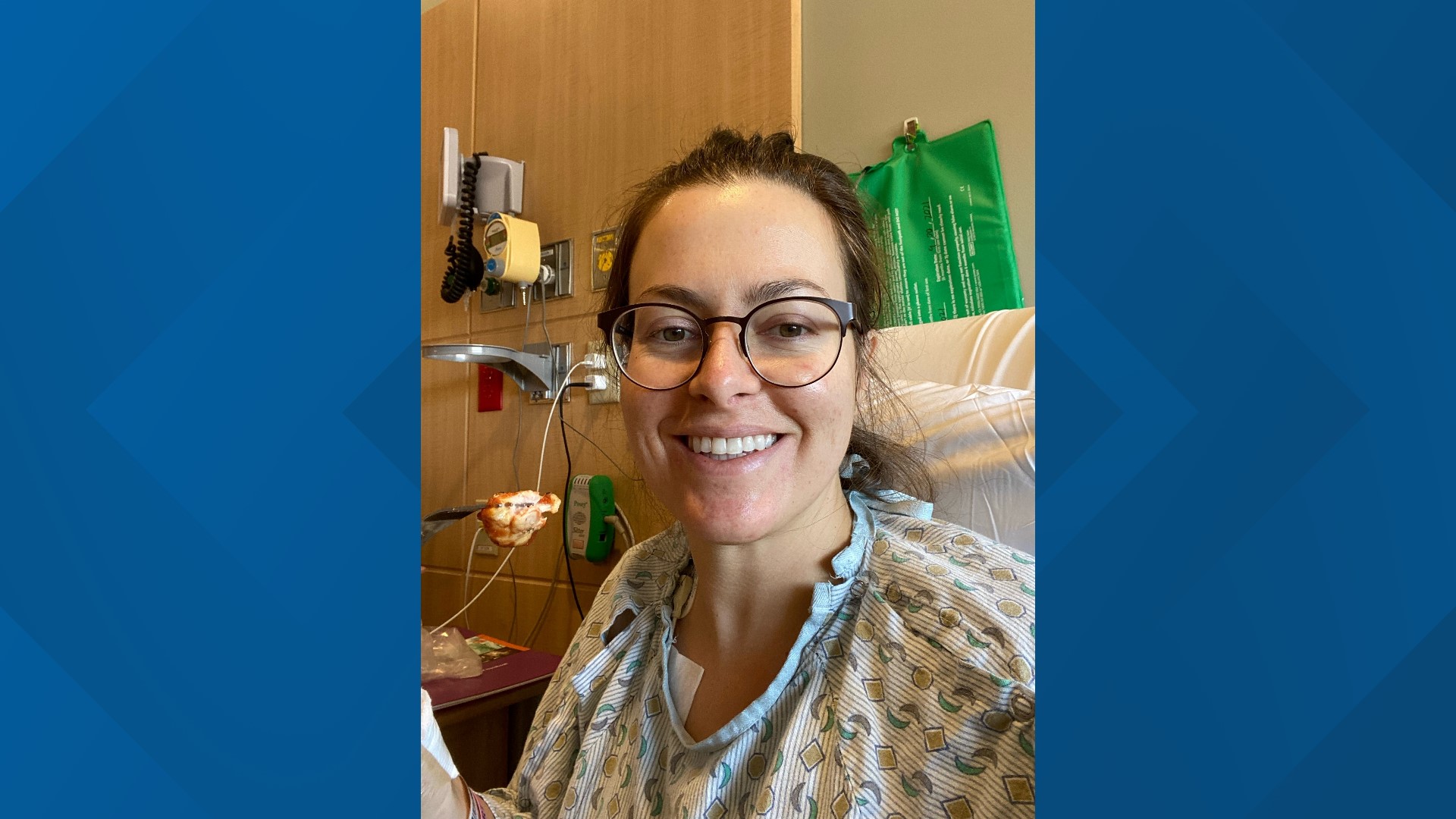HARRISBURG, Pa. — This month is National Cancer Prevention Month—and doctors are increasingly seeing younger patients developing cancer. It's an issue that hits close to home for Stephanie Williams of Linglestown.
“It was terrifying. I have a daughter and I had a whole life that I was so scared of losing," said Williams, who was diagnosed with cancer in September 2021.
At 36 years old, Williams was undergoing treatment for adenocarcinoma—a common form of lung cancer. She says it all started when she developed a lingering cough.
“It was mild, it had a little bit of a wheezing quality, and it was in the absence of any illness," recalled Williams. "It wasn’t until a regularly scheduled doctor’s appointment that I brought up, ‘Hey, I’ve been dealing with this cough for a while.’”
After ruling out allergies and asthma, her doctor scheduled a chest x-ray. That's when they discovered the tumor. The diagnosis set off a chain reaction of biopsies, surgeries, and chemotherapy.
For Williams, the diagnosis came as a shock.
“This can’t be cancer," said Williams. "I’m in my 30’s, I don’t have the risk factors like a smoking history or family history. I thought it had to be something else.”
Williams' diagnosis is part of a concerning trend of people developing cancer at a younger age. According to a study by BMJ Oncology, the number of people under the age of 50 being diagnosed with cancer has gone up 80% worldwide in three decades—and doctors are unsure why.
“There are speculations of lifestyle changes, smoking, alcohol use, hereditary factors," said Dr. Kit Lu, a medical oncologist at the UPMC Hillman Cancer Center in Harrisburg. "But there’s still many other reasons that we don’t know why younger patients are having more cancers.”
Dr. Lu said it’s important to always listen to your body and to reach out to your doctor if you experience symptoms like unexplained weight loss, lingering cough, and blood in your stool.
“If something is lingering in your body or lingering in your mind for two weeks or longer, that’s something you should be talking to your doctor about," said Dr. Lu.
She also said people should reach out for cancer screenings as soon as they're eligible. For mammograms, the recommended age is 40 years old. For colonoscopies, the recommended age is 45 years old.
Stephanie’s scans remain clear two years after her diagnosis, thanks to early detection from her doctors.
“Early detection is the name of the game when it comes to having the best possible outcome for a cancer diagnosis," said Williams.

